MercoPress. South Atlantic News Agency
Tag: blackout
-
Friday, May 10th 2019 - 09:57 UTC
Developers rush to supply electricity to Brazilian state that depends on Venezuelan power
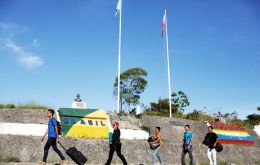
Developers have presented more than 150 proposals for power plants ahead of an auction this month to supply electricity to the Brazilian state of Roraima, which has struggled with a rash of blackouts due to reliance on the shaky Venezuelan power grid.
-
Monday, April 1st 2019 - 08:20 UTC
Venezuela collapses: no power, water or internet; Schools suspended, workday limited to 02:00 PM
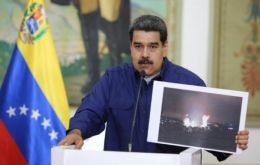
Venezuela’s President Nicolas Maduro announced 30 days of electricity rationing on Sunday, after his government said it was reducing the length of the workday and keeping schools closed due to devastating blackouts plaguing the country.
-
Sunday, March 31st 2019 - 17:07 UTC
Venezuela suffers the fifth mass blackout of the month
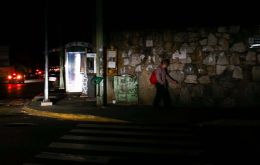
A new massive blackout was recorded this weekend in Venezuela after a nationwide interruption of electricity service this Friday, which was slowly restored in main cities as Caracas. However, a new relapse of the supply occurred on Saturday night, affecting 16 states of the country - more than half.
-
Thursday, March 28th 2019 - 09:01 UTC
Venezuela has ceased to supply power to a Brazilian northern state
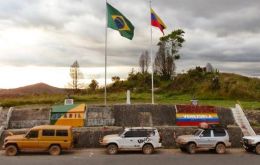
Brazil Mines and Energy Minister Bento Albuquerque said that Venezuela had not complied with its contract to supply the northern state of Roraima with energy since March 7. Roraima is a neighbor of Venezuela and an international bridge has become an escape way for thousands of Venezuelans fleeing from the Nicola Maduro regime and the lack of food and medicines.
-
Thursday, March 28th 2019 - 09:00 UTC
Guaidó calls on supporters to protest blackouts and prepare for a major Freedom March
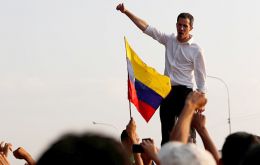
Venezuela's opposition leader Juan Guaidó has called on his supporters to take to the streets in protest at nationwide power cuts. He also told followers to prepare for a final push to try to overthrow President Nicolás Maduro.
-
Tuesday, March 26th 2019 - 08:48 UTC
Another blackout in Venezuela: government blames “attack” on the power system
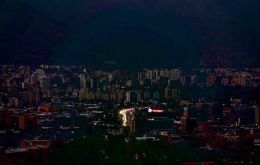
Venezuela blamed an “attack” on its electric system for a blackout on Monday, the second to hit the OPEC nation this month, that shuttered businesses, plunged the main airport into darkness and left commuters stranded in the capital. Power went out in much of Caracas and nearly a dozen states in the early afternoon, stirring memories of a week-long outage earlier in the month that was the most severe in the country's history.
-
Monday, March 18th 2019 - 08:50 UTC
Maduro requested the resignation of his cabinet to make a “restructuring”

On Sunday, the Venezuelan President, Nicolás Maduro, asked his executive cabinet to make his charges available to carry out a “restructuring”. This was confirmed by the vice president of the oil country, Delcy Rodríguez through her Twitter account, where she noted that “the President has requested the entire Executive Cabinet to put their charges to order for the purposes of a thorough restructuring of the methods and Bolivarian government operation to shield the Homeland from any threat!”
-
Saturday, March 16th 2019 - 09:21 UTC
Venezuelan continued oil fallout presents a challenge for global markets, says IEA
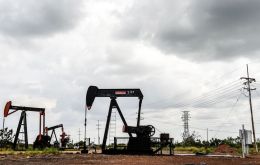
A major advisor to energy producing nations has suggested that the continued fallout from Venezuela could present a “challenge” for global oil markets. The International Energy Agency (IEA) has warned that crude supplies from Venezuela are at risk of falling sharply in the midst of an electricity crisis which has paralyzed the country recently.
-
Wednesday, March 13th 2019 - 08:48 UTC
Venezuela orders US diplomats to leave within 72 hours; blames Trump for the “cyber sabotage”
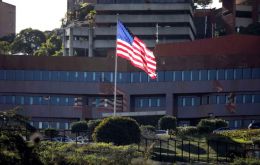
Venezuela ordered American diplomats to leave the country within 72 hours on Tuesday after President Nicolas Maduro accused US counterpart Donald Trump of cyber “sabotage” that plunged the OPEC nation into its worst blackout on record.
-
Tuesday, March 12th 2019 - 19:31 UTC
Bachelet “concerned” about the arrest of Venezuelan journalist and activist Luis Carlos Díaz
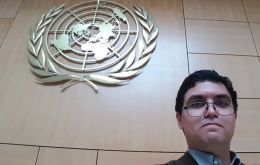
Luis Carlos Diaz, a Venezuelan journalist who is an expert in networks and critical of the Nicolás Maduro regime, was arrested on Monday, without capture order, by the Bolivarian Intelligence Service (SEBIN) after leaving his radio program, denounced his wife and colleague Naky Soto. On Tuesday, the UN High Commissioner for Human Rights, Michelle Bachelet, referred to the arrest and asked the authorities for “urgent access” for her technical mission in Venezuela to Díaz.
